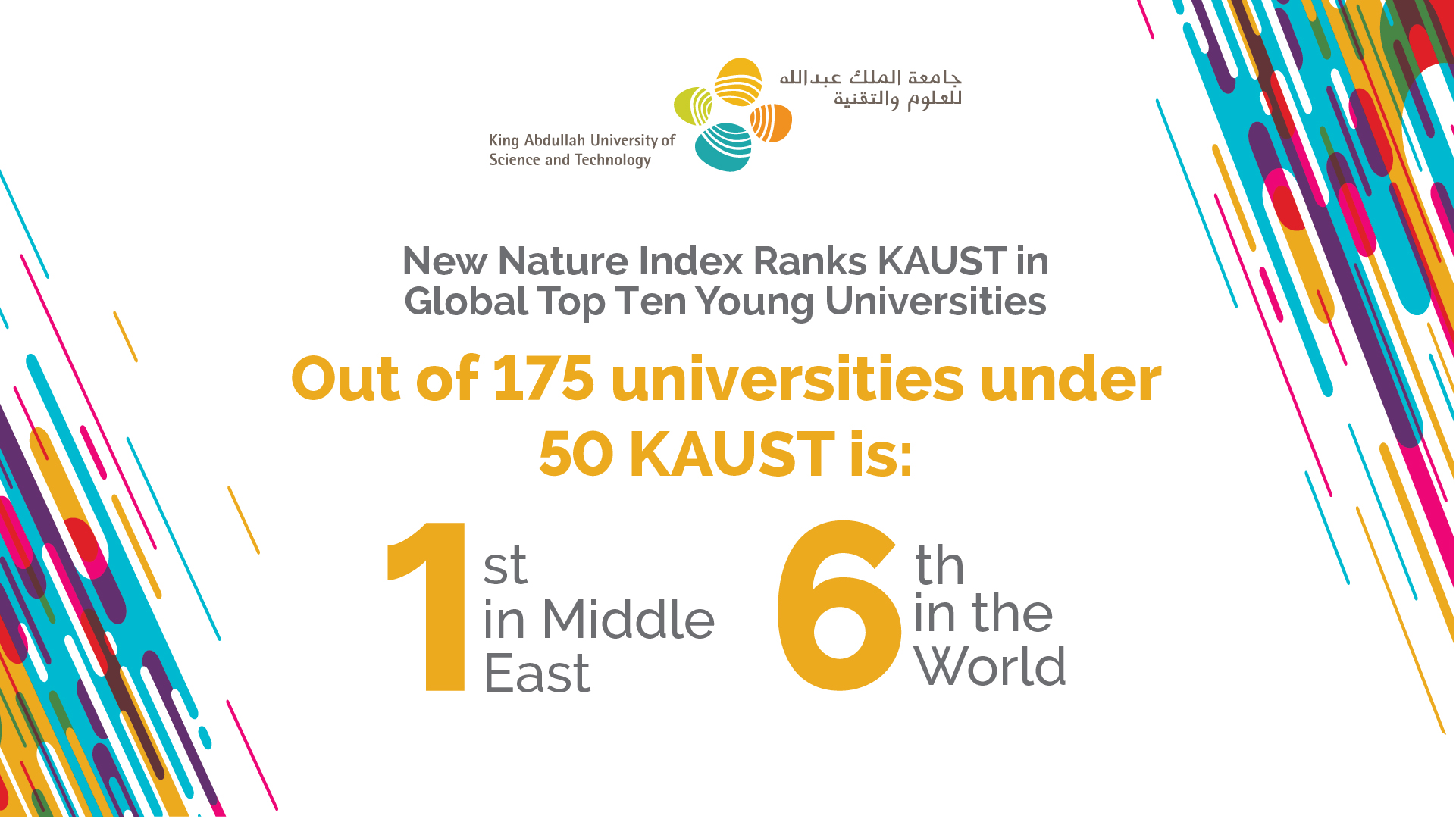KAUST ranks in top ten of Nature Young Universities Index

KAUST ranks in top ten of Nature Young Universities Index
King Abdullah University of Science and Technology (KAUST) has ranked sixth in the world and first in the Middle East and North Africa, among a new Nature index of 175 young universities globally.
The Young Universities Index, published by Nature the internationally renowned scientific research journal, lists the top 175 universities established over the past 50 years.
“We are delighted with this result, especially during our tenth year. It attests to the quality of our faculty and the impact that their publications have had globally. We’re gratified by this recognition and proud that we are achieving this part of our mission in a short ten years,” says KAUST President, Dr. Tony Chan.
The report praised the quality of KAUST's research, adding that KAUST is an academic body that has produced exceptional applied research outputs. It also stated that KAUST contributes a greater proportion of total research outputs than any other young university in the Middle East.
“KAUST has a truly unique research environment, enabling it to achieve such outstanding results as a young university. Our international, unencumbered, pioneering and extremely focused approach allows us to continue to push the boundaries of knowledge, while acting as a catalyst for social and economic prosperity in Saudi Arabia and the world,” says Distinguished Professor Donal Bradley, Vice President for Research at KAUST.
The Nature Index provides absolute and fractional counts of article publication is an indicator of global high-quality research output and collaboration.
The tables in the new index rank the top 50 young universities by their fractional count (FC) for articles published in 2018. Also listed are the institutions’ article count in 2018, the subject or subjects in which they achieved their highest rank, and their rank among all academic institutions in the Nature Index.
The Nature Index is a database of author affiliations and institutional relationships. The index tracks contributions to research articles published in 82 high-quality natural science journals, chosen by an independent group of researchers.

